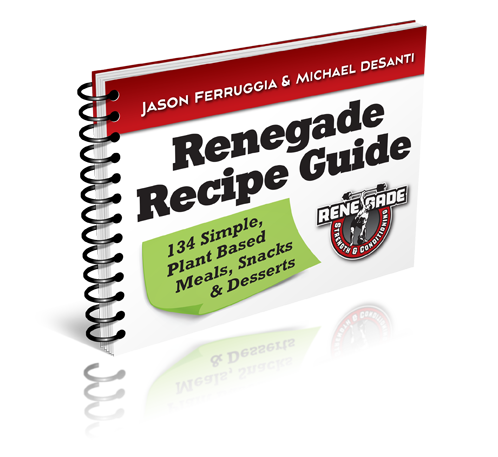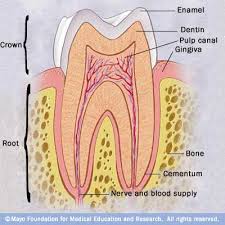Narconon Arrowhead Announces New Tips to Handling Nutritional Deficiencies Resulting from Addiction
Canadian, Oklahoma (PRWEB) March 14, 2015
Addiction and Nutritional Deficiencies
According to the Medline Plus, a source of information provided by the U.S. National Library of Medicine National Institutes of Health, the body is harmed by substance abuse in two ways. One source of harm is the substance itself adversely affecting the body. And the negative lifestyle (addiction lifestyle), which minimally includes a poor diet and irregular eating habits, is also a source of harm.
Recovering from substance use and abuse also affects the body in a number of other ways, including organ function, processing energy (metabolism), and mental well-being.
Providing the body with proper nutrition can aid in its healing process after substance abuse. Needed nutrients supply an individual’s body with energy. Needed nutrients provide substances, which the body needs to fight off infection, and to build and maintain health and healthy body organs.
Different drugs impact the body and its nutrition in different ways.
Opiates particularly affect the gastrointestinal system, and a high-fiber diet that includes vegetables, whole grains, beans and peas is recommended.
Alcoholism is cited by MedLine Plus as a major cause of nutritional deficiency in the U.S. Most common alcohol-caused deficiencies include vitamin B6, vitamin B1, and folic acid. A deficiency of these nutrients causes neurologic (nervous system) problems and anemia.
“Wet brain,” which is also called Korsakoff’s Syndrome ,results from heavy alcohol use resulting in a lack of adequate thiamine (B1).
Two major body organs involved in nutrition and metabolism are damaged by alcohol use—the pancreas and the liver. The liver functions to remove harmful toxins from the body. The pancreas functions to regulate blood sugar and fat absorption.
The use and abuse of stimulants such as methamphetamine, cocaine, and crack results in reduced appetite leading to poor nutrition and weight loss. Because those abusing stimulants may go without sleep for days, they can also end-up dehydrated. The marked weight-loss stemming from stimulant drug abuse can make returning to a normal diet difficult.
Marijuana can lead to an appetite increase in the user. Long term users may become overweight and need to reduce sugar, fat and total calories.
Handling Nutritional Deficiencies
A healthy diet and balanced nutrition help improve a person’s mood and health. When a person feels better physically and mentally, he or she is less likely to start using drugs and alcohol again. Encouraging a person in recovery to eat a healthy diet can go a long way towards maintaining mental and physical well being.
Adapting to a healthier lifestyle and a more nutritious way of eating can be done at a level and a pace which works for the person making the change. With that in mind, Narconon Arrowhead offers the following tips to handle addiction-caused nutritional deficiencies:
Make regular mealtimes a part of your daily routine, and your lifestyle.
Eat nutritious snacks and meals.
Include more protein, dietary fiber and complex carbohydrates in your diet. Complex carbohydrates include such foods as starchy vegetables (green peas, corn, and potatoes), whole grain cereals and breads, and legumes (peas, peanuts, beans, lentils).
Try to eat foods low in fat.
Add high quality vitamin and mineral supplements to your diet during recovery. Liquid vitamins and minerals may be more easily assimilated. Vitamins A, C, B-Complex and Zinc are basics. A local natural health food store is a good source of high-quality and nutrient-dense supplements.
Drink plenty of fluids. Dehydration is common during substance abuse recovery.
Avoid sweets. Sugar has no nutrient value.
Choose an exercise you enjoy, and get some exercise daily.
Get adequate rest, and adequate sleep. A well-fed and well-rested body will help you in your recovery.
Make friends with others who are creating a healthy lifestyle as part of their recovery, and help each other achieve your health and nutrition goals.
For more information call 800-468-6933 or log into http://www.narcononarrowhead.org.
Sources:
http://healthfinder.gov/NHO/nho.aspx?year=2015#127
http://www.nationalnutritionmonth.org/nnm/
http://www.nlm.nih.gov/medlineplus/ency/article/002149.htm
Follow us on:
![]()
![]() ©Copyright 1997-
©Copyright 1997-
, Vocus PRW Holdings, LLC.
Vocus, PRWeb, and Publicity Wire are trademarks or registered trademarks of Vocus, Inc. or Vocus PRW Holdings, LLC.
 Fat Burning Kitchen:Never count calories again
Fat Burning Kitchen:Never count calories again Low Glycemic Veggies
Low Glycemic Veggies 100% protein quinoa grain
100% protein quinoa grain Daily Antioxidant/Natural Remedies
Daily Antioxidant/Natural Remedies Get Truth About Healthy Teeth
Get Truth About Healthy Teeth Healthy Cooking
Healthy Cooking
Leave a Reply
You must be logged in to post a comment.